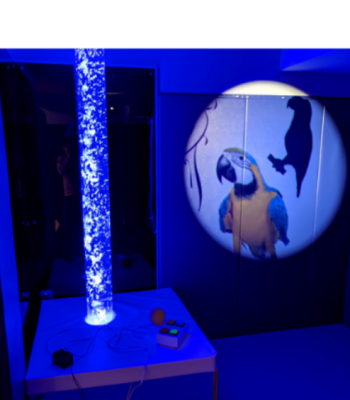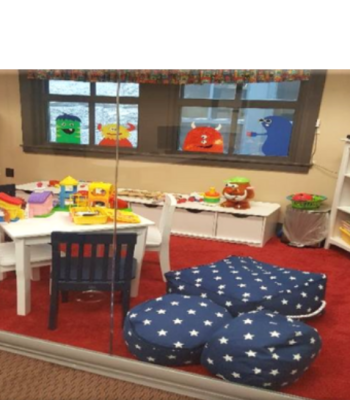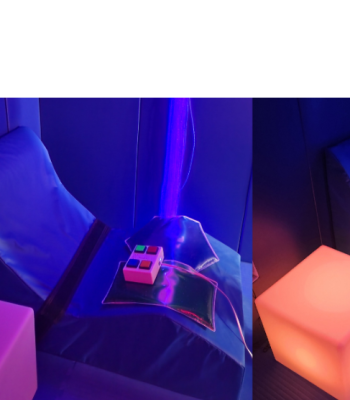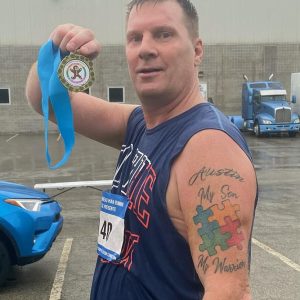On Saturday, April 29, 2023, our friends at A Magical Fundraiser are hosting 13th Hour Entertainment and Autism Connection of PA for a casual night out at the Tonidale Pub in Robinson Township. A Magical Connection is a fun, high-sensory event that benefits the region’s autism community.
This event features:
- Dinner
- Mindwarp Show featuring Mentalist/Magician Steve Haberman with the vocal talents of Tracy Lynn
- Disc Jockey and Dancing by Nite Life DJz
- Basket Raffle and 50/50 drawing
Autism Connection of Pennsylvania spoke with the talented Tracy Lynn and the amazing Steve Haberman.
Autism Connection (AC): You’re involved in many different endeavors. Can you share about 13 Hour Entertainment, A Magical Fundraiser, the Mindwarp show, and your partnership?
Tracy and Steve (TS): 13th Hour Entertainment Inc. is a company specializing in family and corporate entertainment. We have combined with Magic Wand Princess Parties, Nite Life DJz and other entertainers to provide A Magical Fundraiser to help organizations that have fundraising needs. We provide the entertainment for these functions along with advice on how to make fundraising events successful. From years of working at these events, we have learned a lot about how the organization can maximize their efforts and money generated. Over the years we have worked with schools, fraternal organizations, companies, and other charitable organizations. Our Mind Warp Show is one of the most popular entertainment options for this type of event. It combines magic, comedy, and music into one show that appeals to all audiences.
AC: How did you become involved with A Magical Connection Fundraiser for Autism Connection?
TS: We have a lot of friends and family who have children or relatives that are on the spectrum. We have been wanting to do a fundraiser for a few years now to benefit autism awareness, because we think it is important for families to know the support that is there for them and truly feel accepted. With the pandemic, our plans were put on hold. We have a very close friend who has autism that guided us to the Autism Connection of PA, and we couldn’t be happier to be working with this foundation.
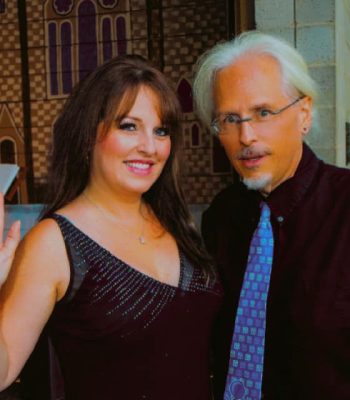
Tracy Lynn and Steve Haberman
AC: Do you have any outstanding experiences with people on the autism spectrum as a performer/artist?
TS: Many entertainers that work with 13th Hour Entertainment have performed for people on the autism spectrum. Magician Steve Haberman in particular, performs at numerous schools throughout Pennsylvania, Ohio and West Virginia for school assemblies and there are normally kids at these events who have a range of disabilities, autism, and hidden differences. He has performed for children with special needs in smaller groups and birthday parties as well. Steve also provided magical entertainment for a convention at Pittsburgh’s David Lawrence Convention Center for an autism conference. During this conference, Steve performed multiple magic shows throughout the day for the kids while parents attended various meetings and lectures. It is our great pleasure to work with the Autism Connection of PA on a fundraiser for this very important cause.
Ticket and Sponsorship Information Here
If you have questions about this event, feel free to call Tracy Lynn at 13th Hour Entertainment, (412) 926-3472 or email her at [email protected].
Support for Autism Connection of PA directly impacts people of all ages facing many challenges related to autism. Contributions raised will fund: help for families seeking resources, development of inclusive, sensory friendly areas across Pennsylvania, first responder training, virtual and in-person workshops, school homeroom and assembly talks about hidden differences, educator and administrative training, justice system reform, and so much more.
Visit Wednesday Wake Up Call for weekly updates of our current work.










